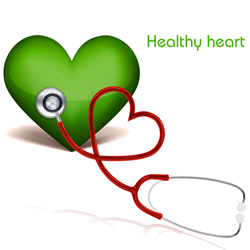Courtesy of PRWeb and Harvard Health Publications, please share your comments below. This article is from May, but still has good information in it.
 When the heart temporarily gets less blood than it needs, it’s known as cardiac ischemia. Often the result of clogged heart arteries, ischemia can cause chest pain (angina).
When the heart temporarily gets less blood than it needs, it’s known as cardiac ischemia. Often the result of clogged heart arteries, ischemia can cause chest pain (angina).
Poor blood flow to the heart during exercise, stress, or other times when the heart works harder can cause the chest pain known as angina. This pain may be centered in the chest, or it may spread to the shoulders, arms, neck, or jaw. Sometimes, though, there’s no pain at all. This condition, called silent ischemia, is surprisingly common, according to the May 2015 Harvard Heart Letter.
Ischemia comes from a Latin term that means “stopping blood.” It occurs when something, usually a coronary artery narrowed by cholesterol-laden plaque, fails to deliver enough oxygen-rich blood to part of the heart muscle when the heart needs to work harder.
“People with heart disease may have five to 10 times as many episodes of silent ischemia as symptomatic ischemia,” says Dr. Peter Stone, a professor of medicine at Harvard Medical School and director of the vascular profiling research group at Brigham and Women’s Hospital.
Ischemia — whether it’s painful or not — raises the risk of heart attack, especially in people who have high blood pressure or other factors that stress the heart. Things that can trigger silent ischemia or angina include:
* walking outside briskly on a cold, windy, or humid day
* hurrying with a heavy load
* exerting yourself after a heavy meal
* working under a deadline
* speaking in public
* engaging in sexual activity
* being worried, tense, or angry.
Detecting silent ischemia can be a challenge. It is often discovered during a stress test to check for possible heart disease.
Several types of medication are used to treat ischemia. These include beta blockers, which lower the heart’s workload; calcium-channel blockers and nitrates, which improve blood flow by widening coronary arteries; and ranolazine (Ranexa), which also improves blood flow to the heart muscle.
Read the full-length article, “Angina and its silent cousin”
Also in the May 2015 issue of the Harvard Heart Letter:
* Life’s “Simple 7”: Ways to improve cardiovascular health
* The downside of too much sitting
* Weight-loss drugs and your heart
The Harvard Heart Letter is available from Harvard Health Publications, the publishing division of Harvard Medical School, for $20 per year. Subscribe at http://www.health.harvard.edu/heart or by calling 877-649-9457 (toll-free).
